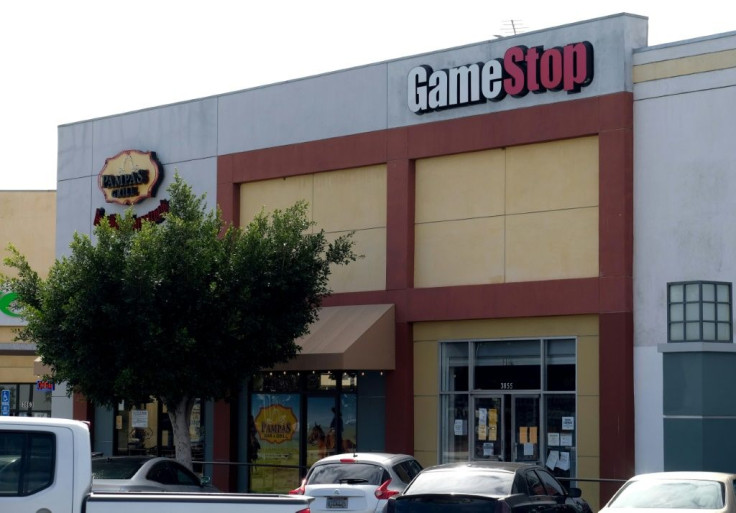GameStop Share Ride: Shooting Star Or Rocket To The Moon?
After rocking the stock market at the end of January due to a speculative buying frenzy, shares in video game store chain GameStop are buzzing anew on Wall Street.
GameStop shares more than doubled in price on Wednesday then rocketed further on Thursday in trading so heated that stock market operators tapped the brakes to cool the situation.
GamesStop ended the formal trading day at $108.73, up 18.56 percent, but lost ground in after-hours trading.
Trading driven by emotion or risk-taking rather than business fundamentals put the spotlight back on GameStop's wild ride, which has captured attention due to what some see as a battle between ordinary folks and titans of Wall Street.
The spike in shares of GameStop, traded on the Nasdaq under the symbol GME, began a day after it was announced that its chief financial officer Jim Bell will step down on March 26.
GameStop contended in a filing with US financial regulators that Bell's departure was not the result of any disagreement about the company's activities or practices.
However, news website Business Insider cited anonymous sources familiar with the matter as saying Bell was ousted by new GameStop board member Ryan Cohen, an activist investor known for shaking companies up to get them on paths to success.
Cohen, a co-founder of online pet products shop Chewy, taking a stake in GameStop was among the triggers that caused shares to lift off early this year.
Amateur investors on online forums seemingly intoxicated by their cumulative power to move share prices went on to flex their buying muscle on shares in other companies such as AMC cinemas and headphone maker Koss.
An army of amateur investors, many exchanging advice and opinions on a popular forum at the Reddit website, began buying up GameStop in defiance of hedge funds that had bet shares in the company would tank because the video game disk-selling company is out of synch with the Internet age.
Institutional investors seeing the David and Goliath battle taking place between amateurs and hedge funds moved in to profit from market movements, adding to the volatility.

What began as dueling stock market bets came to represent ordinary people striving to claim some of the wealth hoarded by the financial elite.
US regulators began investigating practices of hedge funds and whether brokerage platforms, including free trading app Robinhood, moved to protect financial professionals suffering huge losses as shares in GameStop rocketed.
Investor Charlie Munger, business partner of billionaire Warren Buffet, this week lamented what he saw as a lot of people using stock markets to gamble as they might when betting on horses, with those handling transactions the most likely to profit.
After peaking at more than $347 in late January, GameStop shares fell back to about $40 at the end of last week.
Given market prices can be driven by emotion and speculation rather than clear business factors, it is a guess how high they may rocket or how quickly they may plunge.
Members of the WallStreetBets forum on Reddit continued to tout GameStop shares as heading for the moon.
"I feel like the people who are still holding GME from last month are stuck at the top of Everest and we just built a rescue helicopter out of tinfoil and used car parts," wrote a Reddit user from the account of Healthy_Mammooth_1066.
"Hang in there diamond hands. Help is on the way."
Diamond hands is a WallStreetBets reference to someone who has held onto shares long and hard.
What is happening with GameStop trading is evidence of a change in the markets, according to Thomas Gorman, a partner at the international law firm Dorsey Whitney and an authority on trading regulation.
"The battle recently between what appears to be smaller retail investors on one side trading through Robinhood and against the large shorts is not a one-off event," Gorman said.
"To the contrary, it is just the opening salvo in what is likely to be a shift in the markets where large shorts cannot simply step in and trade against a struggling company."
Short selling is when investors who think a stock is overpriced borrow shares and sell them, expecting to buy them back more cheaply then pocket the difference.
© Copyright AFP 2024. All rights reserved.





















